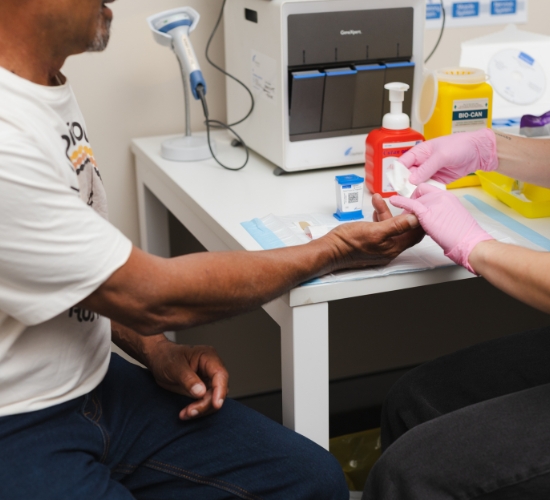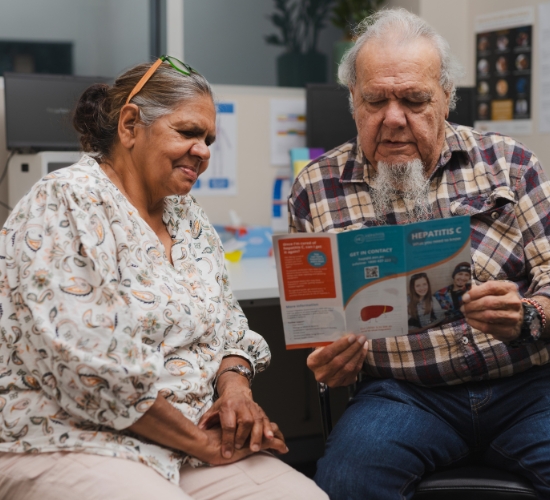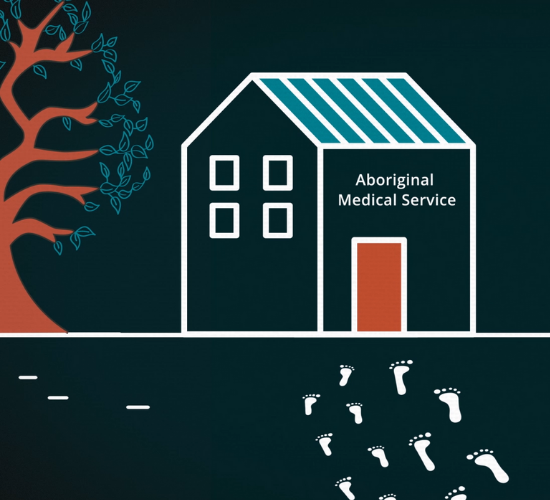Keeping your liver healthy keep your whole body strong. You don’t always feel it when something’s wrong but a quick check can help keep you on track.
The 715 health check is your chance to ask your health worker to check your liver and get tested for hepatitis B and C.
About hepatitis
Hep B and C are viruses that can make your liver sick. They can cause inflammation and damage to your liver, and if left unmonitored and untreated it can cause chronic liver disease and liver cancer.
While hepatitis B and C can both damage your liver, they are differences in how they are prevented, tested and treated.

If you’re not vaccinated there’s a number of ways you can get hep B. These include:
- when a mother living with chronic hep B transmits the virus to her baby, usually at birth
- blood-to-blood contact
- unprotected sex.
Hep B is present in other body fluids, such as breast milk and saliva; however, not in high enough quantities to cause transmission.
Preventing hep B
The best way to protect yourself and your mob from hep B is to be vaccinated.
- Adults have 3 jabs in 6 months
- Bubs have 4 jabs over 6 months from birth
Ask at your local clinic if you are vaccinated or how to get your jabs done.
Managing hep B
Being diagnosed with chronic hep B can be upsetting; however, there is lots of information and support available.
The most important message is that chronic hep B is a very manageable chronic condition, like diabetes. With some positive lifestyle changes, people living with chronic hep B will live a long and healthy life.
Having a regular six-monthly check-up is the most important thing you can do if you are living with chronic hep B. These check-ups will look at what is going on inside your liver, and what care, management and treatment may be needed.
Hep C is spread through blood-to-blood contact such as:
- sharing needles or injecting equipment
- having a tattoo or piercing with unsterile equipment
- sharing toothbrushes, razors or clippers
The good news is in most cases hepatitis C can be cured. Treatment for hep C is simple.
- 95% chance of being cured
- Tablets (no injections) for 8 to 12 weeks
- Little no side effects
- Covered by Medicare and Closing the Gap
- If you get hep C again, you can do treatment again.
All doctors can prescribe treatment for hep C. You can access treatment at some Alcohol and Drug Services, Sexual Health Clinics, as well as Aboriginal Medical Services.
A blood test is the only way to know if you have hep B or C. The test can tell your doctor a great deal about what is going on inside your liver – importantly, if you have hepatitis B or C, and if you do, what treatment is needed.
The blood tests for hep B and C are not always included in a 715 Adult Health Check, you might need to ask your doctor for it.

Some simple lifestyle changes that will positively impact your health and liver include:
- reducing or avoiding alcohol – alcohol can increase the chance of liver damage
- eating a well-balanced diet
- getting regular exercise
- trying to maintain a healthy body weight
- reducing stress and getting support
- resting when needed.

Animation
Auntie May and the dodgy tattoo
The story book of Auntie May and the dodgy tattoo is now an animation as well. This video brings to life the characters of Iluka, Janalli, Miro and Bindi as they learn about the hepatitis B virus.
Story Book
Auntie May and the dodgy tattoo
Auntie May and the dodgy tattoo follows the story of Iluka, Janalli, Miro and Bindi as they learn about the hepatitis B virus.
This beautifully written and illustrated comic was created in partnership with Carbal Medical Services.

Aboriginal Medical Services across Queensland can provide hepatitis B and C testing, vaccinations, check-ups and treatment. The following websites will help you to find your nearest clinic:
You can also access hepatitis B testing and vaccinations at other health services such as your GP or sexual health clinic.



